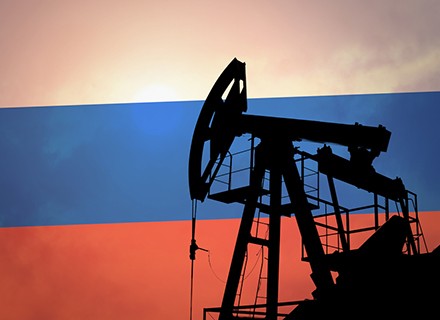Analysts believe that Russia, the leader of the non-OPEC oil producers in the OPEC+ coalition, will not cut output while oil prices climb.
Recently, OPEC+ declared its most incredible cut since 2020. The actual drop from current OPEC+ oil output would be around 1 million BPD-1.1 million BPD, despite the “monster” headline amount of 2 million BPD. This is because many producers haven’t met quotas for months. In addition, western sanctions have led to decreased Russian oil output, which has joined Nigeria and Angola as OPEC laggards.
Russia was 1 million BPD below its 11-million-BPD quota for September, so it won’t have to cut output and will benefit from rising oil prices.
Saudi Arabia, meeting quotas, will shoulder most of the OPEC+ cut in November. As a result, Saudi Arabia will lower output by 526,000 BPD to 10.478 million BPD. Russia has the same goal but is 500,000 BPD short.
Despite OPEC+’s assurance that the decision to decrease production was “technical,” analysts saw the action as political. As a result, they expect oil prices to return to $100 per barrel sooner than expected and anticipate a 2023 oil market deficit. They also perceive Russia as a winner of the OPEC+ accord since oil prices will rise. At the same time, Russia’s production will fall, and Russia won’t have to cut a barrel of its output if it has a big enough market after December to sell the petroleum now heading to Europe.
Weak gas trading earnings could hurt Shell’s profits
Ole Hansen, Head of Commodity Strategy at Saxo Bank, said Russia is the winner of the OPEC+ cut due to dropping production, growing oil discounts, and a loss of gas profits. However, Hansen said the global consumer is the loser, while threats include a more aggressive Fed rate hike policy, a strong US dollar, and slower economic development.
After the OPEC+ summit, economists said oil prices would rise through 2022 and 2023.
Morgan Stanley predicts oil prices will rise to $100 per barrel faster than expected in the first quarter of 2023. Likewise, Goldman Sachs boosted its Brent crude prediction by $10 to $110 per barrel.
Russia’s Deputy Prime Minister, Alexander Novak, representing the country at OPEC+ meetings, said the government would not supply oil to countries with a price cap.
Such nonmarket tools undermine the energy market. According to Novak, if they want to implement such a mechanism, consumers will pay for it, as quoted by TASS. As a result, Novak said Russian oil and condensate production would fall next year.
Despite Russia and OPEC+’s assertion that the output cut is technical and aimed at “stability,” many analysts and the White House regard it as political.
“This is immensely political and a clear signal of Opec’s displeasure with the price cap. Whether or not the price cap works, they see it as a hazardous precedent,” said Energy Aspects’ Amrita Sen.
The White House called the OPEC+ cut “shortsighted” and “misguided.”
“We think this move by OPEC+ is a mistake and unwise. With today’s declaration, OPEC+ is siding with Russia,” White House Press Secretary Karine Jean-Pierre said.
In light of today’s move, the Biden Administration will work with Congress on additional tools and authorities to decrease OPEC’s grip over energy prices, Jake Sullivan and Brian Deese said.

